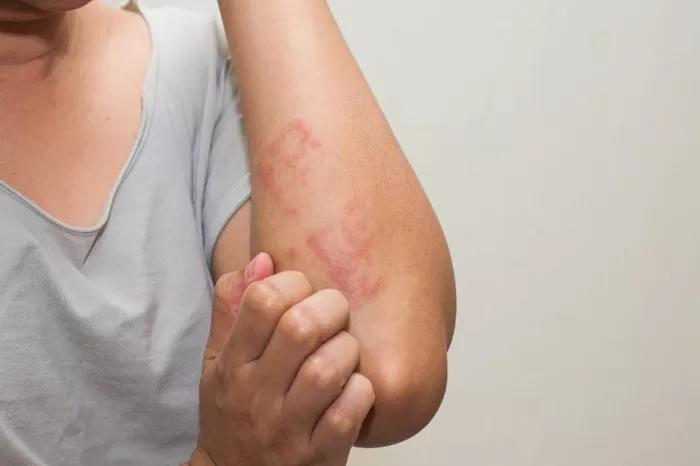Watermelon allergy is a type of food allergy that is caused by an immune system reaction to proteins found in watermelon. These proteins are called allergens. When someone with a watermelon allergy eats watermelon, their immune system mistakenly identifies the allergens as harmful and produces antibodies to fight them. These antibodies bind to the allergens and trigger a cascade of events that lead to allergy symptoms.
Symptoms of Watermelon Allergy
The symptoms of watermelon allergy can range from mild to severe. Mild symptoms may include:
1. Tingling or itching in the mouth or throat
2. Hives
3. Skin rash
4. Nausea
5. Vomiting
6. Diarrhea
More severe symptoms may include:
1. Difficulty breathing
2. Wheezing
3. Dizziness
4. Lightheadedness
7. Loss of consciousness
Causes of Watermelon Allergy
The exact cause of watermelon allergy is unknown, but it is thought to be caused by a combination of genetic and environmental factors. Some people are more likely to develop food allergies than others, and certain environmental factors, such as exposure to certain chemicals or pollutants, may increase the risk of developing an allergy.
Risk Factors for Watermelon Allergy
There are several risk factors for watermelon allergy, including:
1. Having a family history of food allergies
2. Having other allergies, such as hay fever or asthma
3. Being a child
4. Having eczema or other skin conditions
Diagnosis of Watermelon Allergy
If you think you may have a watermelon allergy, it is important to see a doctor. Your doctor will perform a physical exam and ask you about your symptoms and medical history. Your doctor may also order one or more of the following tests to confirm the diagnosis:
Skin prick test: This test involves pricking the skin with a needle and placing a small amount of watermelon extract on the prick. If you are allergic to watermelon, you will develop a raised, itchy bump at the test site.
Blood test: This test measures the level of antibodies in your blood that are specific to watermelon allergens. A high level of antibodies may indicate an allergy.
Treatment for Watermelon Allergy
There is no cure for watermelon allergy, but there are treatments that can help to manage the symptoms. These treatments include:
Avoiding watermelon: The most effective way to manage watermelon allergy is to avoid eating watermelon. This means reading food labels carefully and avoiding any foods that contain watermelon or watermelon extract.
Antihistamines: Antihistamines can help to relieve mild allergy symptoms, such as itching, sneezing, and runny nose.
Epinephrine: Epinephrine is a medication that is used to treat severe allergy symptoms, such as difficulty breathing and wheezing. Epinephrine is available in an auto-injector that is easy to use.
Prevention of Watermelon Allergy
There is no sure way to prevent watermelon allergy, but there are some things you can do to reduce the risk of developing the allergy. These include:
Introducing watermelon into your child’s diet slowly: If your child is at risk for developing a watermelon allergy, introduce watermelon into their diet slowly and carefully. Start by giving your child a small amount of watermelon and wait a few days to see if they develop any symptoms. If your child does not develop any symptoms, you can gradually increase the amount of watermelon they eat.
Avoiding exposure to watermelon: If you are allergic to watermelon, it is important to avoid exposure to the fruit. This means reading food labels carefully and avoiding any foods that contain watermelon or watermelon extract. You should also avoid contact with watermelon seeds and pollen.
Conclusion
Watermelon allergy is a type of food allergy that can range from mild to severe. The exact cause of watermelon allergy is unknown, but it is thought to be caused by a combination of genetic and environmental factors. There is no cure for watermelon allergy, but there are treatments that can help to manage the symptoms. If you think you may have a watermelon allergy, it is important to see a doctor for diagnosis and treatment.
[inline_related_posts title=”You Might Be Interested In” title_align=”left” style=”list” number=”6″ align=”none” ids=”6011,6014,6016″ by=”categories” orderby=”rand” order=”DESC” hide_thumb=”no” thumb_right=”no” views=”no” date=”yes” grid_columns=”2″ post_type=”” tax=””]
































